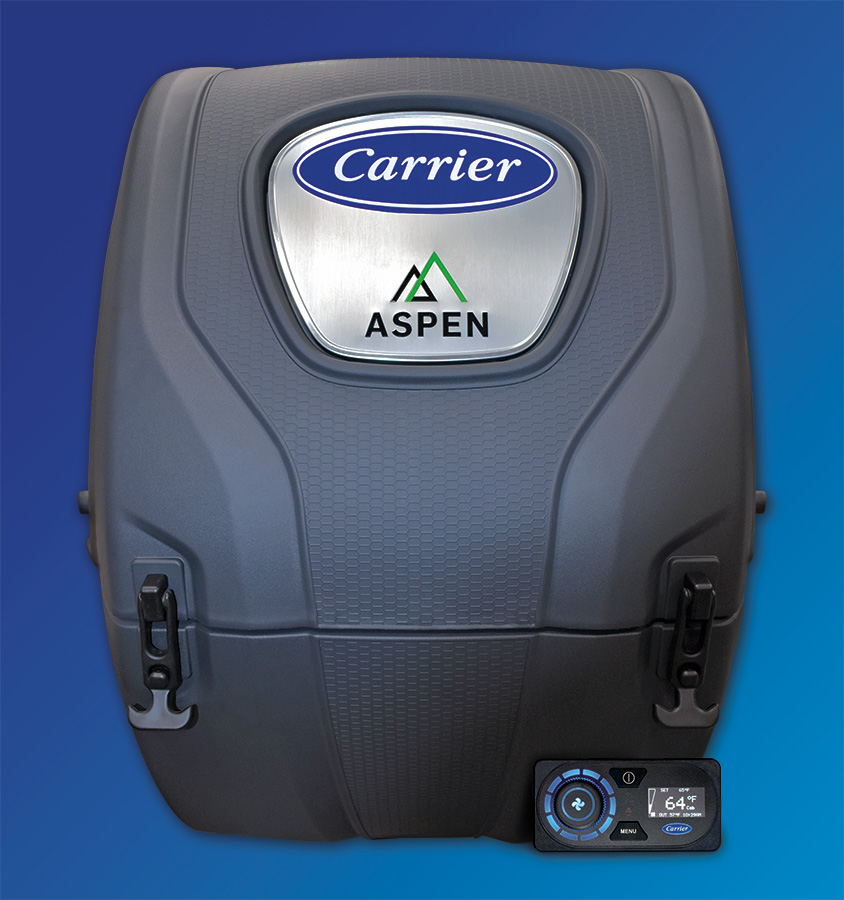Carrier Transicold launches Aspen APU
Carrier Transicold’s new Aspen diesel auxiliary power unit (APU) features a new driver interface and a high-output generator to keep drivers comfortable while on the road.
“Taking a fresh approach to cab comfort and convenience, we designed the Aspen APU from the inside out for high performance, versatility, durability, reliability and ease of use,” said Ryan Rubly, product manager – alternative power, Carrier Transicold.
“We’ve added an innovative and easy-to-use control interface for drivers along with new APU configuration options for heating and hotel power loads. Technicians will appreciate our new CabinTech PC software that enables fast setup, service and troubleshooting of the Aspen APU.”

The Aspen is built with marine-grade components and is enhanced for greater strength and corrosion resistance, the company says. Automotive-grade IP67-rated electronics protect against sand, dust and water penetration. A lightweight, corrosion-free injection-molded housing cover provides easy access to the powerplant, even behind fairings, the company says.
The Aspen features 12,000 BTU per hour of cab cooling, with a standard 8,200-BTU-per-hour electric heater, and optional 7,000 BTU-per-hour fuel-fired Carrier cabin heater. An optional inverter can maintain hotel loads when the truck is moving. Several options of the Aspen APU are available for order, including an integrated system that uses a coolant exchange for truck engine pre-heating and a standalone unit that powers the tractor’s block heater for engine heating. There’s also a power-only version for work trucks that need an APU but don’t require cab climate control.
Have your say
This is a moderated forum. Comments will no longer be published unless they are accompanied by a first and last name and a verifiable email address. (Today's Trucking will not publish or share the email address.) Profane language and content deemed to be libelous, racist, or threatening in nature will not be published under any circumstances.